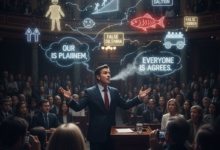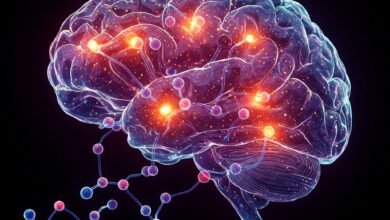Essential Dog Training Tips and Tricks for Every Dog Owner

Understanding Dog Behavior
To effectively train and bond with a dog, it is crucial for every owner to grasp the fundamental principles of canine behavior. Dogs, as social animals, exhibit a variety of behaviors that are deeply rooted in their instincts and social structures. Understanding these aspects can greatly enhance the relationship between a dog and its owner.
Canine body language plays a pivotal role in how dogs communicate their feelings and intentions. A dog’s posture, tail position, and facial expressions can give vital clues about its emotional state. For instance, a wagging tail might indicate excitement or happiness, while a tucked tail may signal fear or submission. Owners who learn to interpret these signals can respond more appropriately to their pets’ needs and emotions. Recognizing the nuances of dog behavior allows for a more harmonious interaction, paving the way for successful training outcomes.
In addition to body language, understanding the social structure of dogs is essential. Dogs are pack animals by nature, and they have an inherent need for social hierarchy. They often look to their owners as part of their pack and tend to respond better to those who establish themselves as calm and assertive leaders. This doesn’t imply harsh discipline; rather, it emphasizes the importance of consistency, patience, and positive reinforcement in training. When an owner demonstrates these qualities, it can foster trust and respect between the dog and its human companion.
Moreover, instinctual behaviors, such as chewing, digging, and barking, are integral to understanding canine psychology. These actions often stem from natural instincts and can be modified or redirected through effective training techniques. Recognizing why dogs engage in these behaviors can help owners manage them appropriately, promoting a better quality of life for both the pet and the person. By comprehending the fundamentals of dog behavior, owners can create a nurturing environment that fosters learning, trust, and joy.
The Importance of Consistency in Training
Consistency is a cornerstone of effective dog training and serves as a fundamental principle that every dog owner must acknowledge. When it comes to teaching a dog commands, behaviors, and expectations, uniformity in approach not only facilitates learning but also helps establish an environment of trust and security for the dog. When commands, rewards, and consequences are applied consistently, dogs are more likely to understand what is expected of them, leading to a more harmonious relationship between owner and pet.
Successful dog training hinges on the ability of the owner to provide a clear and unified message. This means using the same commands for specific behaviors each time, ensuring that family members or anyone else involved in the dog’s care are on the same page regarding training techniques. For instance, if one family member uses “sit” while another says “down” for the same behavior, the dog may become confused and less likely to respond appropriately. A consistent approach minimizes confusion and helps the dog learn more effectively.
Moreover, consistency extends beyond just verbal commands; it also includes the use of rewards and corrections. Positive reinforcement is most effective when it is consistently timed and delivered. For instance, if a dog performs a desired behavior, immediate acknowledgment through praise or treats reinforces that action and encourages repetition. Conversely, maintaining a uniform standard for consequences helps dogs comprehend boundaries, making them less likely to engage in undesirable behaviors.
Ultimately, establishing a consistent training regimen is crucial in shaping a dog’s behavior. Not only does it promote good behavior and learning but it also fosters a sense of security, significantly enhancing the bond between the dog and its owner. By remaining steadfast in their training methods, dog owners can cultivate a well-adjusted companion that responds positively to commands.
Positive Reinforcement Techniques
Positive reinforcement is a widely respected and effective method for training dogs. It involves rewarding desired behaviors, which encourages the dog to repeat those behaviors in the future. By utilizing this training technique, dog owners can foster a more harmonious and responsive relationship with their pets. Common forms of rewards include treats, verbal praise, and playtime, each serving to reinforce the dog’s actions positively.
To implement positive reinforcement, it is crucial to identify effective rewards that resonate with your dog. For many dogs, food treats are particularly appealing; however, the key is to choose high-value treats that your dog truly enjoys. This could be small pieces of cooked chicken, cheese, or specially designed dog biscuits. When your dog performs a desired behavior, such as sitting on command, offering a treat immediately reinforces the action and helps the dog associate the behavior with the reward.
Verbal praise also plays an equally important role in positive reinforcement. Dogs thrive on the approval of their owners, and using enthusiastic praise can create an encouraging atmosphere for learning. Phrases such as “Good boy!” or “Well done!” repeated with excitement can have a profound effect on your dog’s motivation to comply with commands. Coupling verbal praise with physical affection, such as petting or belly rubs, can further enhance this rewarding experience.
Another effective strategy is incorporating playtime into your reinforcement plan. For many dogs, engaging in a favorite game or a few minutes of fetch is a highly motivating reward. This adds an interactive and enjoyable element to training sessions. Positive reinforcement not only promotes good behavior but also deepens the bond between the dog and owner. By consistently applying these techniques, dog owners can cultivate a well-behaved pet while ensuring training remains a joyful experience.
Basic Commands Every Dog Should Know
Training your dog in basic commands is crucial for fostering a harmonious relationship between you and your pet. These fundamental commands not only enhance obedience but also ensure safety in various situations. Here, we discuss four essential commands: ‘Sit,’ ‘Stay,’ ‘Come,’ and ‘Leave It,’ along with step-by-step methods to teach these commands effectively.
1. Sit: To teach your dog to sit, begin by standing in front of them holding a treat. Use the treat to guide their nose up while moving it backward, which naturally causes their rear to lower. As soon as your dog is in the sitting position, reward them with the treat and praise. Repeat this for several sessions, and soon, your dog will await the command to sit.
2. Stay: Once your dog has mastered ‘Sit,’ you can introduce the ‘Stay’ command. With your dog sitting, open your palm towards them and say ‘Stay.’ Take a couple of steps back, and if they remain still, return and reward them. Gradually increase the distance and duration before rewarding. Be sure not to rush the process, as patience is crucial for your dog’s understanding.
3. Come: The ‘Come’ command is vital for your dog’s safety. Start this training indoors in a distraction-free environment. Call your dog’s name followed by ‘Come’ in an enthusiastic tone. Use treats to encourage them toward you. When they arrive, reward them generously. Repeat often, gradually introducing more distractions as they improve.
4. Leave It: Teaching your dog to ‘Leave It’ can prevent them from getting into potentially harmful situations. Begin by placing a treat on the floor and covering it with your hand. Wait until your dog loses interest and pulls back. Once they do, reward them with a different treat. This command requires consistent practice, so keep reinforcing the concept whenever possible.
Training basic commands is a continuous process, and consistency is essential. Avoid common pitfalls such as using too many corrections or being inconsistent with your commands, which can confuse your dog. With time, patience, and positive reinforcement, your dog will grasp these commands, leading to improved behavior and a deeper bond with you.
Socialization: A Key Aspect of Training
Socialization is a fundamental component of a dog’s training and development. It refers to the process of exposing dogs to various environments, people, and other animals in a controlled manner to help them adapt and behave appropriately in diverse situations. Early socialization is particularly crucial, as it lays the groundwork for a dog’s future behavior and social skills. Without proper social exposure, dogs may develop fear-based reactions or aggressive behaviors when faced with unfamiliar stimuli.
Starting socialization early in a dog’s life, ideally during the critical socialization period (between three and fourteen weeks of age), ensures that puppies become accustomed to various sights, sounds, and smells. This period is most effective when puppies are introduced gradually to other dogs, various environments, and different types of people. It is vital that these experiences are positive, preventing the development of fears or phobias. Enrolling in puppy socialization classes can be a beneficial way to facilitate these experiences under the guidance of a professional trainer.
Ongoing socialization throughout a dog’s life remains important, even after the early weeks. Regular exposure to new environments, such as parks, streets, and dog-friendly places, can help reinforce a dog’s confidence and adaptability. Introducing a dog to friendly, well-mannered pets likewise promotes positive interactions and reduces the chances of fear or aggression towards other animals.
Moreover, continuing socialization can have lasting benefits, including improved manners and behavior in public. Dogs that are regularly socialized tend to display better adaptability, reduced anxiety, and enhanced overall well-being. By prioritizing socialization as a key aspect of training, dog owners can foster well-adjusted, sociable pets that are comfortable and confident in their surroundings.
Dealing with Common Behavioral Issues
As a dog owner, you may encounter various behavioral issues that can arise during your pet’s life. Understanding and addressing these common problems are essential for maintaining a harmonious environment for both you and your furry friend. Some typical behavioral concerns include excessive barking, destructive chewing, and unwanted jumping. Each of these issues can stem from various factors, including boredom, anxiety, or lack of training.
Excessive barking is often a primary concern for many dog owners. Dogs may bark out of boredom, fear, or a desire to communicate. To curb this behavior, it is vital to identify the trigger and provide your dog with adequate physical and mental stimulation. Engaging in daily exercise, such as walks or interactive play, can help alleviate excessive barking. Additionally, training your dog to respond to commands, such as “quiet,” can teach them when it is appropriate to bark.
Destructive chewing can also be a significant challenge. Dogs may chew on furniture, shoes, or other household items primarily due to boredom, anxiety, or teething. To address this issue, provide your dog with appropriate chew toys that cater to their chewing needs. Redirecting their attention to these toys when they chew on inappropriate items can reinforce positive behavior. Positive reinforcement, such as praise or treats when they choose their toys, can further encourage the desired behavior.
Jumping on people is another common behavior that requires attention. Dogs often jump as a way to greet their owners or express excitement. While this may seem harmless, it can become problematic, especially with guests. To mitigate this behavior, consistently reinforce calm greetings. Training your dog to sit and reward them when they follow the command can help reduce jumping. These preventative measures are also essential in promoting a well-behaved dog and fostering positive interactions.
In conclusion, addressing common behavioral issues such as barking, chewing, and jumping requires consistent training and positive reinforcement. By identifying the underlying causes and employing effective strategies, dog owners can cultivate better behaviors in their pets, leading to a more harmonious relationship.
The Role of Exercises in Training
Incorporating exercises into dog training is essential for promoting both physical and mental well-being. Engaging dogs in various physical activities not only helps them burn off excess energy but also enhances their focus during training sessions. A well-exercised dog is more likely to exhibit desirable behaviors, making it easier to instill training commands and routines.
One effective way to combine physical exertion with training is through training games. These games encourage interaction between the dog and owner, fostering a deeper bond. For instance, playing fetch can reinforce commands such as “come” and “drop it,” while also providing the dog with the necessary exercise. Such activities not only promote engagement but also help in reducing anxiety and stress, contributing to a more focused training session.
Another beneficial practice is setting up agility courses. These obstacle courses can be tailored to accommodate different skill levels and provide both a physical challenge and mental stimulation for the dog. Navigating through tunnels, jumping over hurdles, and weaving between poles engages the dog’s body and mind, translating into better learning capacity during more structured training activities.
Additionally, the use of interactive toys can serve as an effective training tool. Toys that dispense treats or require the dog to solve puzzles stimulate cognitive function while encouraging problem-solving skills. These mental exercises can be particularly beneficial in keeping dogs engaged and attentive, which is crucial for successful training. When dogs are mentally stimulated, they are less likely to engage in undesirable behaviors, making training sessions more productive.
Overall, integrating a variety of exercises into dog training can significantly enhance the effectiveness of the training regimen. By promoting physical activity and mental engagement, dog owners can create a well-rounded training experience that leads to better behavior and obedience.
Training Tools and Equipment
When it comes to effective dog training, having the right tools and equipment is essential. Various products are designed to help facilitate the training process, making it smoother and more enjoyable for both the dog and the owner. Among the most commonly used equipment are leashes, collars, and harnesses, each serving distinct purposes while contributing to a structured training environment.
Leashes are vital for controlling your dog during training sessions, especially in public settings. There are several types of leashes available, including standard flat leashes, retractable leashes, and even long training leashes. A standard flat leash is often preferred for obedience training due to its reliability and control, while a retractable version can be useful for teaching recall in a controlled manner when space allows. It is important, however, to be cautious when using retractable leashes, as they can foster less control in close quarters.
Collars and harnesses are equally important in the training toolkit. Traditional collars can be effective, but they might not be suitable for every dog, especially those prone to pulling. In such cases, a harness can provide better control without putting undue strain on the dog’s neck. Training collars, such as martingale collars, provide a secure fit and can help prevent slipping, making them a great option for dogs that require more management. The choice between a collar and harness should be guided by the individual dog’s temperament and training needs.
Moreover, training aids like clickers can significantly enhance communication between the dog and the owner. Clicker training promotes positive reinforcement, allowing for clear cues that mark desired behavior. When applied consistently, this technique can yield impressive results in a relatively short amount of time. When selecting training tools, it is crucial to consider the specific requirements of your dog, as well as the training methods you plan to implement. Doing so will ensure that you are equipped with the right resources to achieve effective training outcomes.
Seeking Professional Help: When and Why
Every dog owner strives for a harmonious relationship with their pet, making effective training a necessity. However, there are instances when the expertise of a professional dog trainer or behaviorist becomes crucial. Recognizing when to seek professional assistance can significantly enhance a dog’s learning experience and foster a positive bond between the owner and pet.
One primary indication that professional help is needed is the persistence of behavioral problems that are difficult to manage alone. For instance, issues such as aggression towards people or other animals, severe anxiety, or excessive barking can be challenging for owners to address without proper guidance. In such cases, a qualified professional can assess the underlying causes of these behaviors and develop tailored strategies for modification. Moreover, if a dog displays signs of fear or stress that result in destructive behavior, a trainer can provide strategies to alleviate these issues effectively.
Additionally, complex training goals such as service dog preparation, advanced obedience skills, or specialized tasks often benefit from expert input. Many professionals offer diverse training programs that cater to varying dog needs, including obedience classes, agility training, and behavior modification sessions. Engaging in these programs not only equips dogs with essential skills but also enhances the owner’s understanding of canine behavior and training techniques.
The involvement of a dog trainer or behaviorist can also prove invaluable during critical developmental stages, such as adolescence when dogs may exhibit rebellious behaviors. Owner support during these times is key, and professional guidance can smooth the transition from puppyhood to a well-mannered adult dog.
Ultimately, seeking professional help is a proactive approach to ensuring a well-adjusted canine companion. The insights gained from experts can make a significant difference in managing complex behavioral challenges and contribute to a more fulfilling pet ownership experience.






















